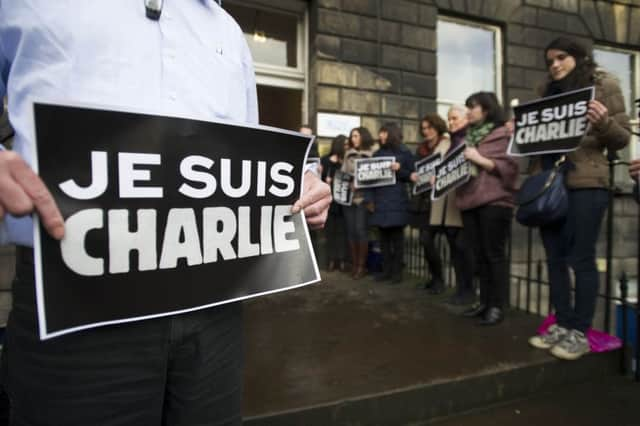‘Wicked angels’ persecution still on fanatics agenda


Éric Jourdan’s Les Mauvais Anges (Wicked Angels) was a romantic novel that arced with the static of teenage rebellion, published in the same year as the release of Rebel Without A Cause, starring James Dean.
Not everyone was enamoured with the behaviour of Parisian lovers, 16 and 17-year-old Gerard and Pierre, least of all the head of the French Book Board, Jean Pihan when it was published in 1955. This censorial Catholic priest wasn’t satisfied with just banning the book; he wanted young Éric – who wrote the book when he was 16 – sentenced for “offending public decency”.
Advertisement
Hide AdAdvertisement
Hide AdIn 1949 a law had been introduced in France responding to a manufactured paranoia over teenage delinquency aimed at publications destined for youth. It was regulated by the Committee to Survey and Control Published Works Destined for Children and Adolescents headed by Father Pihan. Homosexuality and subversive material imported from America were first in the queue for regulation as was anything deemed contrary to bonnes moeurs (good morals), licentious or against public order.
In Father Pihan’s opinion, Gerard and Pierre’s love was a sin. The book also included a suicide; a crime in France at the time. Within a year of publication in 1956 until 1985, Les Mauvais Anges was banned.
There were plenty of other casualties of the book board. American imports like Flash Gordon and Tarzan, a muscular, half-clothed, bestial and poorly educated boy from the jungle, perished in a major cartoon cull. The board put pressure on comic publishers to paint-out the busts of any scantily-clothed seductresses. Pihan deplored the absence of mothers and wives in comics which he regarded as particularly grave for girls.
With a history of banning views they don’t want heard, religious fanatics have been central to many of the most prolific incidences of censorship, from the imprisonment of Galileo for scientific ideas contrary to Church wisdom to the undermining of the science of evolution in schools.
In 1988 an extremist Catholic group set fire to the Parisian Saint Michel theatre while it was showing Scorsese’s Last Temptation of Christ – 13 were injured and four seriously burned. Five Christian militants from the group “General Alliance Against Racism and for Respect of the French and Christian Identity” were given suspended sentences and fined.
In 2015 attacks at the offices of satirical magazine Charlie Hebdo saw 12 staff, including the editor, massacred by two gun-toting Islamists screaming “Allahu akbar” (“God is great”), which led to the new editor promising he would no longer publish cartoons of Mohammed.
In 1697, 20-year-old Edinburgh student Thomas Aikenhead was hanged in Leith at the Kirk’s behest for criticising Christ.
Last year, Aikenhead award-winner Raif Badawi was sentenced to ten years imprisonment and 1,000 lashes for writing a blog critical of Islam in Pakistan. The tragedy is that people are still being sentenced or murdered for merely sharing their views.
Advertisement
Hide AdAdvertisement
Hide Ad• Garry Otton is the author of Religious Fascism and secretary of the Scottish Secular Society. Full article and pictures: http://secularsociety.cloudapp.net/the-wicked-boys-and-the-priest/
SEE ALSO